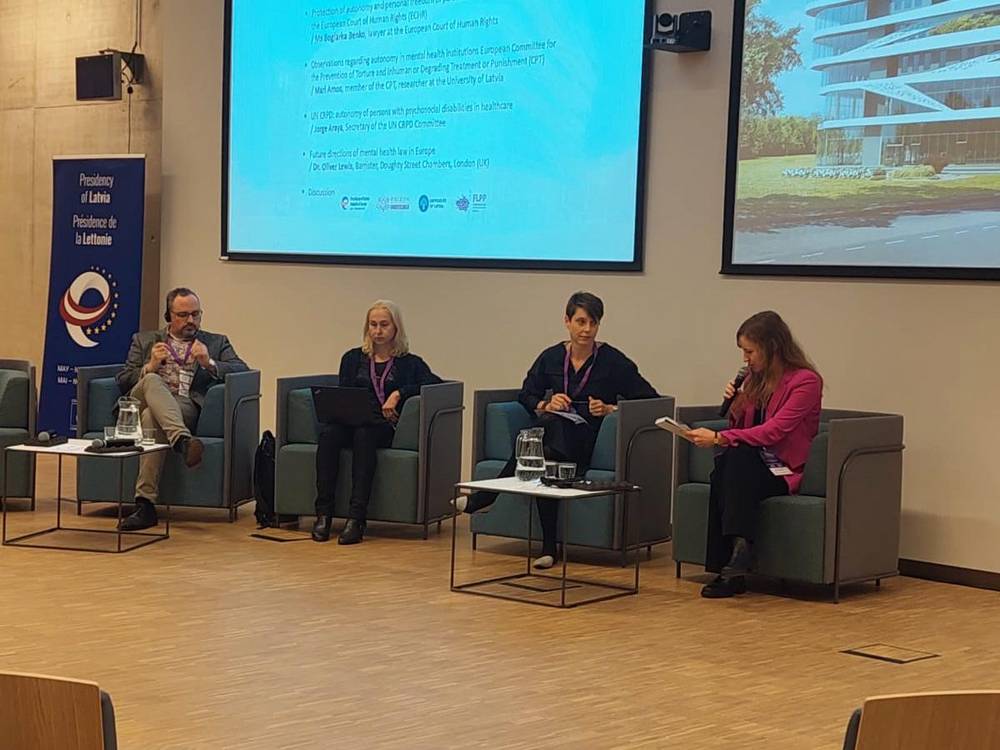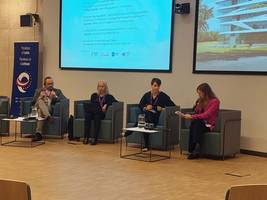On 13 and 14 November 2023, a Consultant at the Center for Human Rights Jerneja Turin, as the president of the Convention on the Rights of Persons with Disabilities Working Group within the European Network of National Human Rights Institutions (ENNHRI), participated at the symposium and conference discussing the promotion of autonomy in mental health, organised in Riga by the Steering Committee for Human Rights in the fields of Biomedicine and Health (CDBIO) in collaboration with the Human Rights Ombudsman of the Republic of Latvia and the Latvian University.
On 13 November, at a legal symposium she moderated a panel with the topic of human rights and autonomy in mental health. Benko from Bulgaria, a legal expert from the European Court of Human Rights, presented the protection of the autonomy and personal freedom of people with disabilities in the practice of the ECHR, while Mari Amos, a member of the European Committee for the Prevention of Torture, presented observations regarding the provision of autonomy in mental health institutions. Jorge Arraya discussed the provision of the Convention on the Rights of Persons with Disabilities connected to the autonomy of persons with psychosocial impairments in healthcare, while Dr Oliver Lewis pondered on the future directions of law in the field of mental health in Europe.
On 14 November, the conference focused on the presentation of potential measures and tools which would contribute to further development and use of responses in mental health based on human rights and Jerneja Turin presented the operation of national human rights institutions in the field of promoting the autonomy of people with impairments.
National human rights institutions (NHRIs) can play an important role in providing transition to ensuring support for persons with impairments in decision-making, instead of deciding for them. They have an important role in monitoring and reporting on violations of the human rights of people who are under guardianship or have their legal capacity taken away, and also in the investigation of closed institutions in which people with psychosocial impairments are frequently placed against their will or with the consent of their guardians or legal representatives. NHRIs can also consider complaints, submit reports to national bodies, and challenge legal provisions in courts.
In 2020, ENNHRI together with Mental Health Europe prepared a publication, the purpose of which was to present examples of progress of supported decision-making in Europe and highlight how national bodies for the protection of rights can support the transition to supported decision-making in accordance with Article 12 of the Convention on the Rights of Persons with Disabilities.

